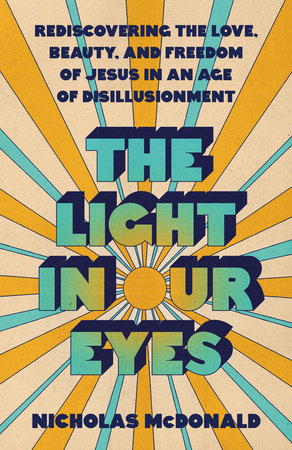The Light in Our Eyes
Rediscovering the Love, Beauty, and Freedom of Jesus in an Age of Disillusionment
Nicholas McDonald
Paperback
May 20, 2025 | ISBN 9780593601525
AmazonBarnes & NobleBooks A MillionBookshop.orgHudson BooksellersPowell'sTargetWalmart
Ebook
May 20, 2025 | ISBN 9780593601532
AmazonApple BooksBarnes & NobleBooks A MillionGoogle Play StoreKobo
Audiobook Download
May 20, 2025 | ISBN 9798217076048
About the Book
As a pastor and author, Nicholas McDonald spent years helping people work through serious questions about the evangelical church’s gospel and its often hurtful responses to those confused by American Evangelical culture. He quickly realized that what these people needed—what he really needed—was not merely apologetics answers but the good news that speaks to their deepest dreams: love, beauty, and freedom—the very things Jesus promises to those who follow Him.
With excellent storytelling and profound insights from his own deconstruction journey, McDonald compassionately addresses the concerns so many readers have with the evangelical subculture’s sense of entitlement, nostalgia, and cynicism. And he outlines a clear path to finding restoration in Jesus. The Light in Our Eyes offers nine ancient practices to help you experience anew—or for the first time—Jesus’s love, beauty, and freedom and to embody and extend them in the world. Through the scriptural song of Zechariah and relatable, inspiring stories of men and women who have been restoried by the gospel of Jesus, this book reminds us that Jesus’ dreams fulfill what our hearts have longed for all along.
Journey from despair and darkness to faith and light as McDonald outlines a path to becoming reenchanted by the dreams Jesus has for each one of us, the church, and the world. To take up His dream is the invitation to believe again, and to hope again.




